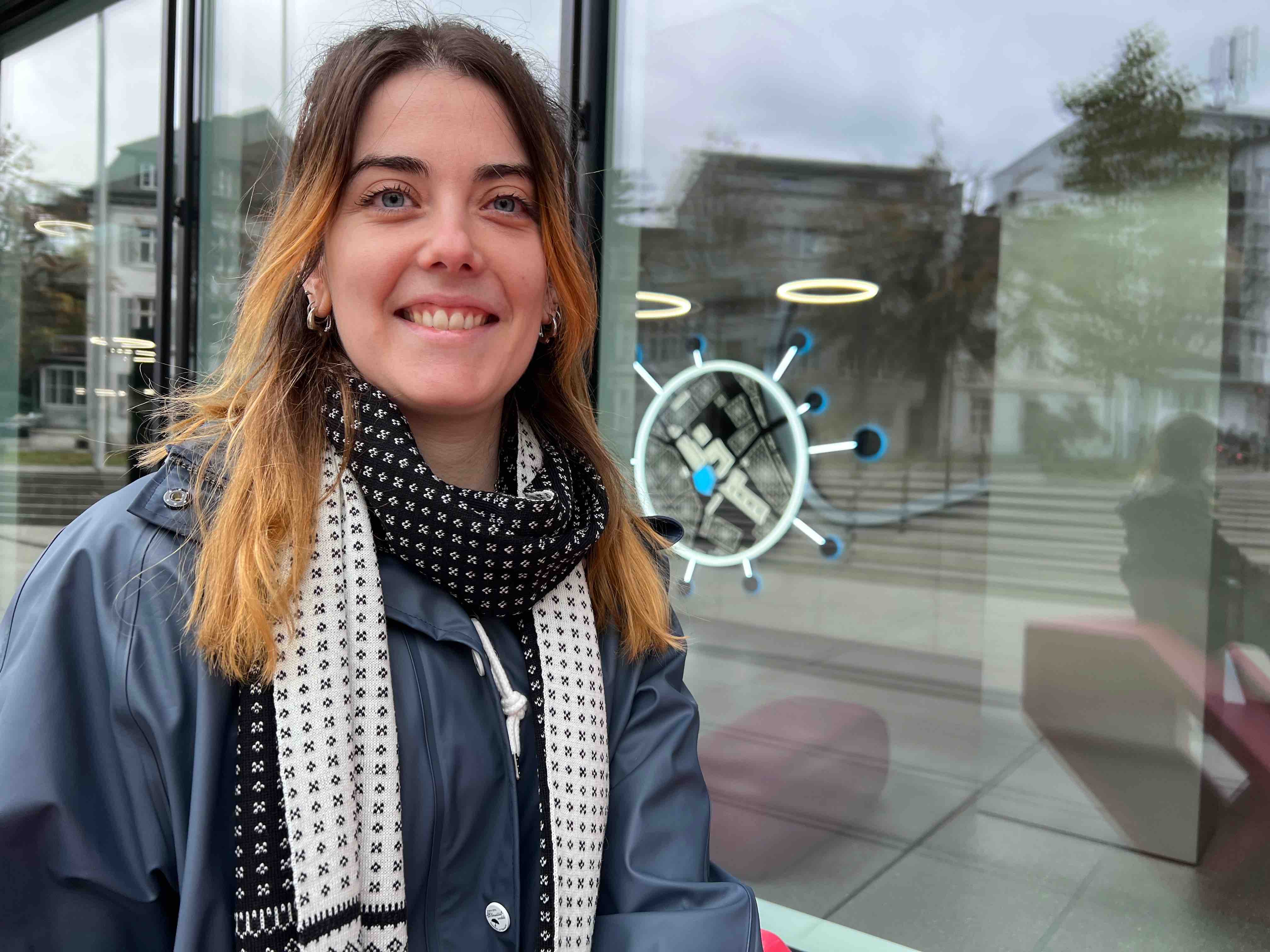Meet Kerstin Lenhof using machine learning techniques on single-cell level for personalised anti-cancer treatment recommendations
The German Computational Biologist will advance algorithms and statistical tools for drug development in oncology. During her postdoc in the Computational Biology group of Niko Beerenwinkel, Kerstin also plans to explore ethical and societal questions related to machine learning techniques. She enjoys hiking and likes (creating and admiring) art – passions for which Basel clearly is the perfect place.

What did you know about D-BSSE before you came here, and what was your motivation to come to ETH Zurich?
When I applied to Prof. Dr Niko Beerenwinkel's lab, I was familiar with the exceptional research conducted at his lab and ETH Zürich in general. In particular, I was drawn to his lab due to its work in cancer research, especially the innovative computational approaches for single-cell analysis. I am particularly interested in exploring how single-cell data can offer valuable insights into the mechanisms of anti-cancer drug treatments, an area in which I already have substantial experience.
What were your expectations, and were your expectations met since you arrived in Basel?
Clearly, I was expecting to meet excellent scientists at D-BSSE. When making my first visit - thanks to Niko for giving me the opportunity before joining his group! - I was assured I would find that. In each group meeting, I am again intrigued by each member's unique perspectives and distinct research contributions.
What were your first impressions…?
At the D-BSSE and ETH Zürich, more generally, there is a plethora of inspiring talks and workshops that can be attended, even more than I expected. I really enjoy this wealth of experiences that one can have. In particular, I absolutely love how ETH promotes lifelong learning and healthy leadership styles, especially the Fix the Leaky Pipeline Programme, which is a true gem! However, sometimes, it can be a tough decision whether or not to join an event due to other job duties ;).
Which research will you pursue at D-BSSE?
I will continue doing research in the direction of anti-cancer drug treatment using machine learning techniques, which is what I also did for my PhD. However, in line with the focus of my new research group, I will extend it into the direction of single cell research. Moreover, I would like to delve into the societal and ethical aspects of machine learning more, particularly in terms of trustworthiness. If someone comes along reading these lines and feeling appealed to, don't hesitate to contact me for a quick chat.
Which hobby do you hope to pursue in Switzerland?
Honestly, this will not change much compared to what I did previously. Interestingly enough, my interests seem to align well with the common themes expressed by others who have been interviewed: I enjoy hiking, and I like (creating and admiring) art! Clearly, Basel is a great place for both.
Many thanks, Kerstin, welcome to the D-BSSE and all the very best to you and your research!
Kerstin Lenhof did her Master’s and Doctorate in Computational Molecular Biology/Bioinformatics at the Saarland University, Germany, specialising in machine learning-based anti-cancer drug treatment optimisation. During her thesis, she developed a conformal prediction augmented method, reliable SAURON-RF, the first approach for anti-cancer drug response prediction that provides certainty guarantees. This research she will now continue at the Beerenwinkel group, focusing at single-cell level.
In the past, she has very active in supervising students and hopes to find students interested in her research topic soon. Personal website > https://klenhof.de/.
Learn about research in the Computational Biology group led by Niko Beerenwinkel.